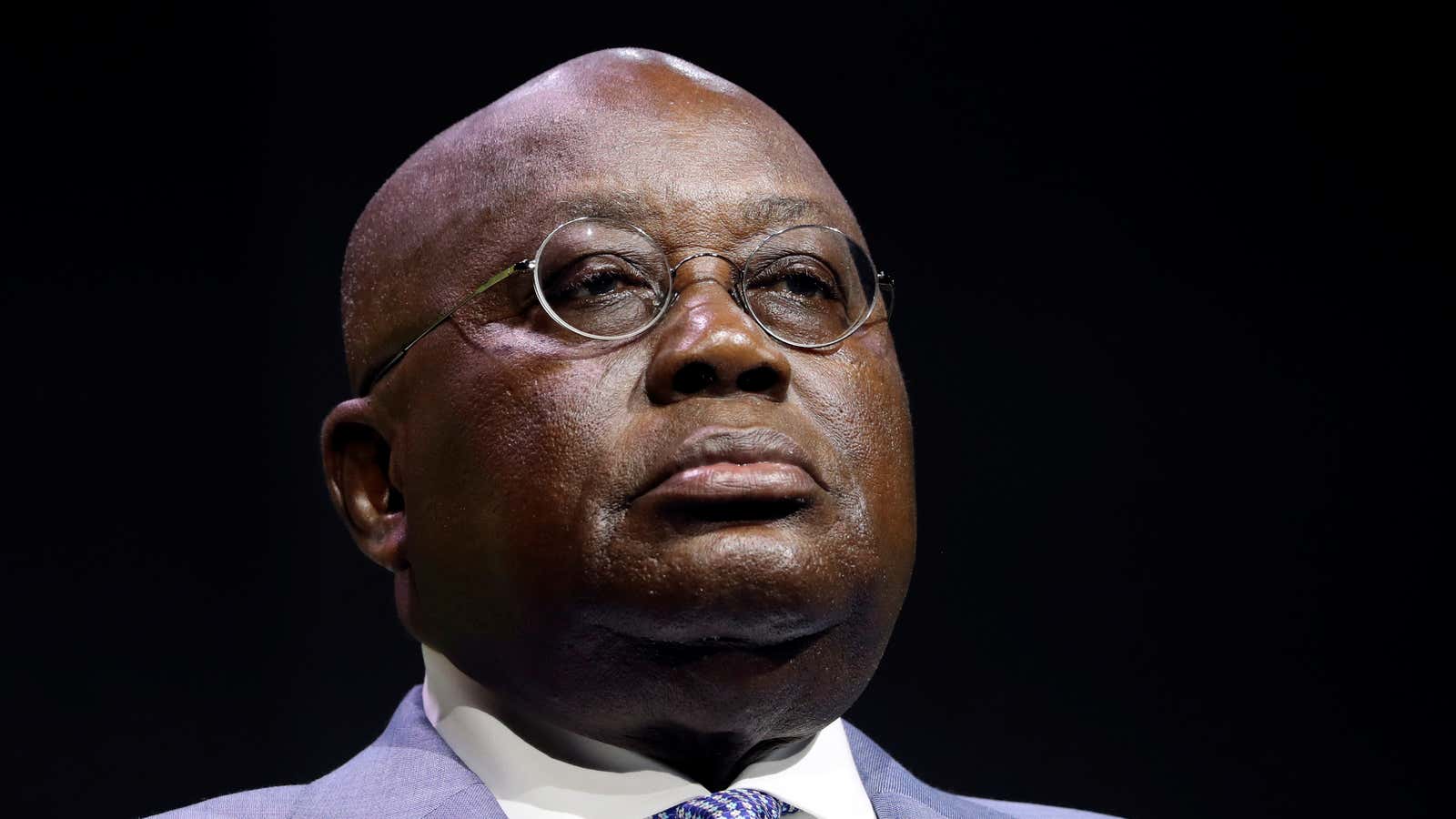“We are in a crisis. I do not exaggerate when I say so,” Nana Akufo-Addo, the president of Ghana, said in a televised address on Oct. 30.
A beacon of fast growth in sub-Saharan Africa within the last half decade, Ghana has experienced a tough year in which households and businesses have been faced with rapidly rising prices and a weakening currency. In his address, Akufo-Addo acknowledged the difficult choices many in the country have had to make though he ascribed the origins to “so many malevolent forces [that] have come together at the same time.”
That’s a reference to the covid-19 pandemic and geopolitical tensions elsewhere. But Ghana’s problems have also been attributed to internal factors including the government’s dollar-buying spree that aggravated the cedi’s devaluation.
Ghana needs to find answers to the problems those forces have unleashed. As the president said, even the $3 billion in aid expected from the IMF won’t be a silver bullet to Ghana’s deepest problems.
IMF money is to fund Ghana’s short term repair
Akufo-Addo said Ghana’s appeal to the IMF is to fund the repair of the country’s short term problems with public finances and for restoring its balance of payments. Ghana hopes to reach the deal by the end of the year and the money will help fund the country’s 2023 budget and post-covid recovery programs, he said.
That would provide the platform for tackling “long term structural changes that are at the heart of our goal of constructing a resilient, robust Ghanaian economy and building a Ghana beyond aid.” Some of those structural needs include better infrastructure, especially healthcare and investments in education.
Ghana has borrowed to fund its development projects, with external debt at $28 billion as at the end of June this year. Akufo-Addo complained that the country was not making as much money as it needed to spend on projects. “What little money we do make is going to pay for the debts we have contracted to fund the development projects we must have.” He promised there would be no haircuts on the eurobonds the country has issued.
But while desperate to fix macroeconomic problems, Ghana’s president did not mind complaining about traders slapping high margins on goods for fear of future higher costs. “We are in this together… keep an eye out for the greater good,” he pleaded.
“We can and will find the means to achieve these goals, even if the immediate measures we have to take are painful.”
